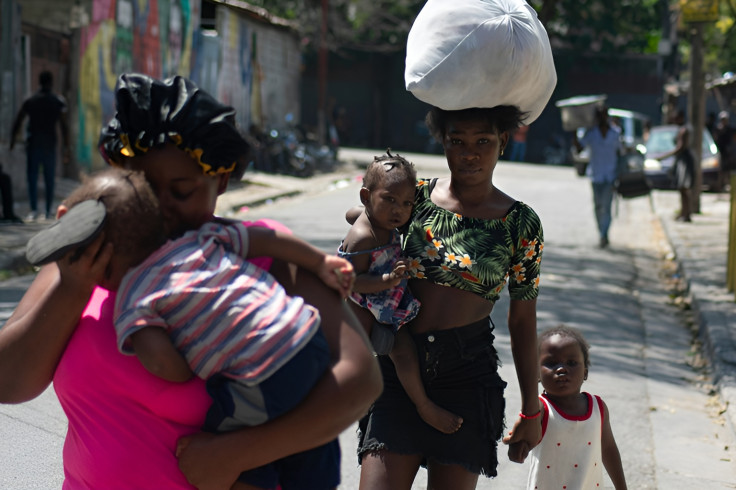
A group of lawmakers and advocates came together on Thursday to urge the Biden administration to address the worsening humanitarian crisis in Haiti.
Haiti Caucus Co-Chairs Rep. Ayanna Pressley (MA-07) and Rep. Sheila Cherfilus-McCormick (FL-20), and Rep. Cori Bush (MO-01) were present in the event.
The former said that the crisis, which has escalated since late February, "demands a humanitarian response, and the United States must take action to stabilize Haiti and save lives."
Over 50,000 people have fled from capital Port-au-Prince over the past weeks as violence escalates and the humanitarian situation worsens.
"The population is left to fend for themselves in this humanitarian crisis. They don't have anywhere to sleep. Gangs are going around stealing homes and burning everything that they have. There's no food. There's no gas," said E*, a person in Haiti in a press call.
Many have headed to the southern, more rural region of the country, worrying officials as it lacks adequate infrastructure to address the needs of that many people.
Among the lawmakers and advocates' were the Biden administration: "extend and redesignate TPS for Haiti," "stop all plans to detain Haitians interdicted at sea at Guantanamo Bay or offshore detention centers," and "Halt all removals to Haiti by land or sea."
"We have a moral obligation to protect Haitians fleeing these horrific conditions, and to support Haitian-led solutions that ensure democracy and stability," said Representative Cori Bush.
Due to weeks of ongoing gang violence, there are about 18 hospitals that have stopped their operations.
Haitian leaders finalized last week a political agreement that will serve as their framework to form a transitional council, tasked with taking the country out of its current state of collapse and overseeing the swearing-in of a new president in roughly two years.
The council will finally be made up of seven voting members and two non-voting observers. The first order of business will be appointing a new Prime Minister.
Council members have given themselves broad powers over the incoming government, including the ability to fire the next prime minister, something that usually falls under the purview of parliament.
© 2024 Latin Times. All rights reserved. Do not reproduce without permission.
Latino men seen as largest group of 'diverse' voters who support Trump in a matchup with Biden
Venezuela's pro-government Congress opposes European Union oversight of elections
Biden and Trump agree to debate in June and September but camps still afar in some details
Child migration through Darien Gap has increased by 40% so far this year, UN says
